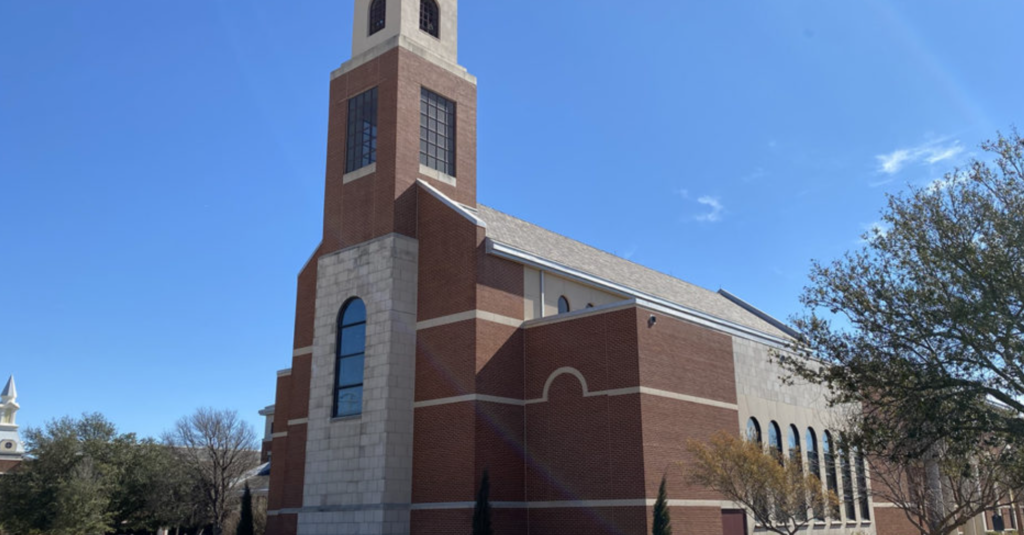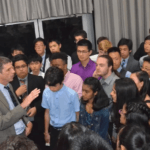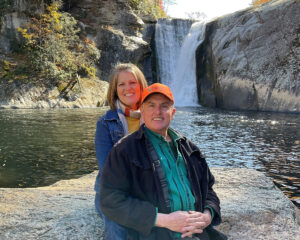
WASHINGTON (RNS) — Professional degrees are gaining traction at theological schools across the United States and Canada, while the traditional ministerial degree—the Master of Divinity—is faltering, according to new data.
But Chris Meinzer, senior director and chief operation officer of The Association of Theological Schools, noted overall enrollment at ATS schools has remained stable and the Master of Divinity degree isn’t dying.
Instead, he said, the Master of Arts degree is appealing to more students—an observation echoed by Todd Still, dean of Baylor University’s Truett Theological Seminary.
The Association of Theological Schools, an umbrella organization with more than 270 member schools, reported an uptick in Doctor of Ministry and other professional doctoral programs designed to enhance a minister’s practical skills.
Based on enrollment numbers reported by nearly 90 percent of schools, projected enrollment for doctoral and similar programs in 2022 was 12,300 students, a 4 percent increase from fall 2021 and a notable 24 percent increase from fall 2018, according to the ATS.
The Master of Arts degree, a two-year program that trains students for a wide range of professions, including doctoral studies, nonprofit work and lay ministry, has also seen a subtle increase of 1 percent since fall 2021, and 5 percent since fall 2018, according to fall 2022 projections.
The ATS reports enrollment in Master of Arts degree programs is now on par with enrollment in Master of Divinity programs for the first time in ATS history, according to fall 2022 projections.
The Master of Divinity degree—a three-year program typically chosen by students pursuing ordination—continues to decline. The projected enrollment for fall 2022 is 28,000 Master of Divinity students, a 4 percent decrease from fall 2021 and 9 percent decline since fall 2018.
Master of Divinity programs still constitute 35 percent of enrollment at theological schools overall, per fall 2022 projections. That’s a significant decline from the 43 percent of total enrollment for Master of Divinity degrees a decade ago.
“What is true for ATS-accredited schools in general is also true for … Truett Theological Seminary in particular,” Still said. “Enrollment in our Master of Divinity program is down, while enrollment in our Master of Arts programs and our Doctor of Ministry program is up. Meanwhile, over the past decade, we have experienced overall enrollment growth.”
In fall 2012, Truett Seminary enrolled 344 students, 289 of whom were pursuing a Master of Divinity degree, Still reported. In fall 2022, Truett enrolled 366 students, 214 of whom are pursuing an M.Div. degree.
“Truth be told, the overall percentage of students enrolled at Truett who are pursuing an M.Div. remains strong at 58.5 percent,” he noted. “That being said, we are grateful to have seen an increase in both our M.A., from 21 in the fall of 2012 to 47 in the fall of 2022, and D.Min., from 34 in the fall of 2012 to 72 in the fall of 2022 enrollment.”
Meinzer said several factors steer students toward Master of Arts programs. In some Christian contexts, he said, the Master of Divinity degree no longer is required for ordination. The two-year degree may also entice students over the typically three-year Master of Divinity degree because it requires less time and less of a financial investment. Others might be attracted to specific master’s degree programs.
“There is lots of creativity happening within our schools,” Meinzer pointed out. Fuller Theological Seminary in Pasadena, Calif., for instance, added a fully online Master of Arts in Justice and Advocacy program in fall 2021.
‘Open to experimentation and innovation’
Similarly, Truett Seminary has expanded its degree programs.
“In keeping with our seminary’s mission and vision and to address sagging M.Div. enrollment, we have begun in recent years new academic programs,” Still said.
He pointed to a Ph.D. in preaching program, along with Master of Arts degree offerings in contextual witness and innovation; theology, ecology and food justice; and theology and sports studies.
Truett has added teaching sites in Houston and San Antonio, in addition to its home campus in Waco.
The seminary also has launched initiatives such as the Black Church Studies Program, the Faith and Sports Institute, the Program for the Future Church, the Truett Church Network and the Wesley House of Studies.
“While Truett Seminary highly values and remains deeply committed to residential theological education leading to the M.Div., we also recognize that any number of students for any number of reasons are either unwilling or unable to pursue this degree with us in Waco,” Still said.
“Therefore, we have been and must remain open to experimentation and innovation in order to be faithful to our mission of equipping God-called people for gospel ministry in and alongside Christ’s church by the power of the Holy Spirit.
“Our aim is to offer an excellent theological education that is as affordable and as accessible as possible, and we are grateful for the strong support that we have received and continue to experience from an ever-growing circle of churches, alumni and friends.”
Overall enrollment at theological schools remains steady, an impressive feat, Meinzer noted, amid changing religious trends and demographic challenges in higher education.
Still, 57 percent of ATS schools reported declining enrollment, a sharp rise from 2020, when 46 percent of ATS schools showed enrollment decreases.
Meinzer pointed to schools’ pivot to online classes as one reason. He said roughly 95 percent of ATS schools went completely online in 2020. The return to in-person study could be negatively impacting enrollment.
As theological institutions look to the future, Meinzer urged schools to continue to innovate to meet the needs of today’s evolving religious scene.
“The world is changing, and we need leaders who can serve that changing world,” he said.
From Religion News Service. May not be republished. With additional reporting by Baptist Standard Managing Editor Ken Camp.






















